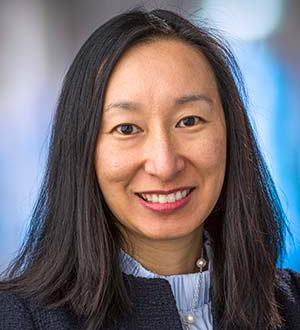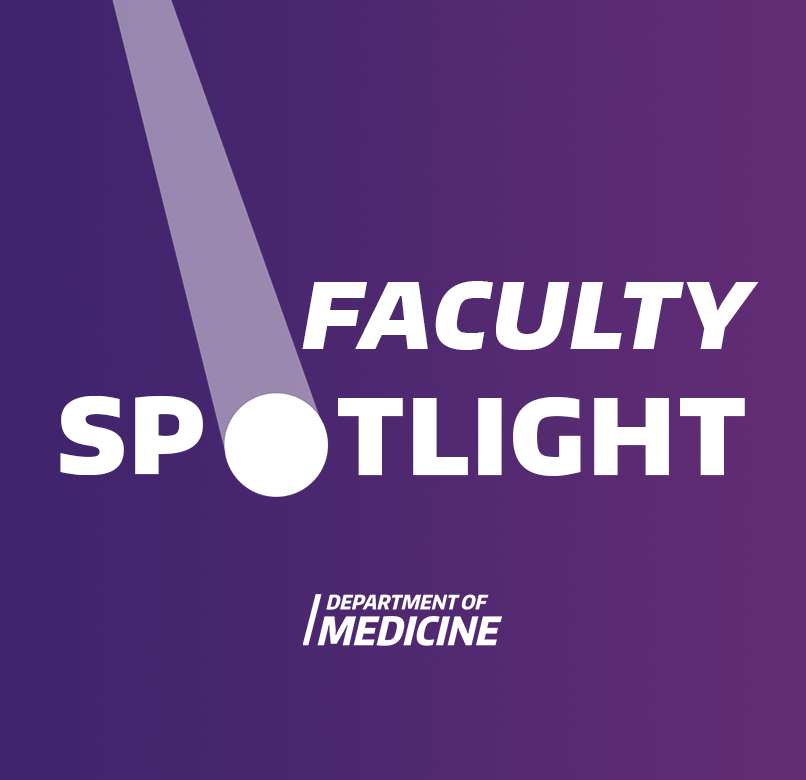

Faculty spotlight: Heather Cheng
Dr. Heather Cheng received her bachelor’s degree from Princeton and combined medical and PhD degrees from the University of Washington Medical Scientist Training Program. She is also a graduate of the UW Internal Medicine Residency and the Hematology-Oncology Fellowship programs.
She has been a faculty member in the Division of Medical Oncology (now Division of Hematology and Oncology) since 2014 and holds an adjunct appointment in the Department of Laboratory Medicine and Pathology.
Cheng is a professor in the Division of Hematology and Oncology and the Clinical Research Division of the Fred Hutch Cancer Center, and serves as the director of the Prostate Cancer Genetics Clinic.
“I really enjoy being able to have a mix of taking care of patients with prostate cancer and those who are at risk for prostate cancer, being involved in cutting edge research, and being able to mentor students, residents, fellows and junior faculty.”
Path to prostate oncology
Cheng’s path toward medicine was inspired by her background as the oldest daughter of immigrants, where a strong emphasis on education and hard work was instilled in her from a young age. During medical school, she was drawn to oncology because of the opportunities to engage in clinical science while also connecting with patients on a personal level. She welcomes the challenge of finding the best treatment path for each individual patient.
“Taking care of cancer patients is not always easy," Cheng said, "but it's tremendously inspiring and rewarding. For me, the balance between being part of research innovation and attending to the humanistic aspects of medicine are complementary in the best way."
While originally considering other cancer types, Cheng became interested in prostate oncology because of the strength and breadth of research opportunities and outstanding mentorship in the field. “I haven't really looked back,” she said. “I think it's been an unexpected surprise and a happy one that I ended up in an area with great advances, great patients and great collaborators.”
Genetics and prostate cancer
One of the major themes of her research and clinical work is around helping people with prostate cancer understand why genetic testing is important, and to encourage them and their families to get genetic testing. Inherited cancer risk gene variants such as in BRCA2 or BRCA1 can run in families. Genetic testing can tell the brothers or sons of patients if they carry the same risk gene, and if so, they can take proactive measures such as tailored cancer screening.
Cheng is working in collaboration with colleagues in Urology and across the country on this front through efforts such as a clinical trial called “PATROL”, which offers tailored prostate cancer screening to people with known prostate cancer genetic risk factors such as carrying an inherited BRCA2 or BRCA1 cancer risk variant.
“I hope that in the future we'll have more options to understand and manage prostate cancer risk along with apply our understanding of prostate cancer genetics to cure more of the prostate cancers that are diagnosed.
"It’s gratifying that the work I do attempts to help the field in this direction: advance our understanding of new cancer treatment options and clinical trials, and help families understand and be proactive about their cancer risk."
"This blend of cancer treatment and early detection of cancer built around families is very rewarding.”
Genetic testing is also useful for precision treatment options, Cheng said. She leads a therapeutic clinical trial through the National Cancer Trials Network and Southwest Oncology Group (SWOG) called S2210, a project she began working on as a junior faculty member and is now open for enrollment.
The study is testing the use of ‘precision’ treatment using carboplatin chemotherapy before surgery for patients with prostate cancer that is potentially curable but at high risk of recurrence, to leverage the biology of their cancer and improve their chances of cure. Carboplatin is an inexpensive, well-tolerated chemotherapy that would not be typically used, but is very effective for cancers lacking BRCA2 or BRCA1 function.
“This is one example of how we hope to change the standard of care for patients using knowledge about inherited cancer risk and precision cancer biology,” Cheng said.
“This research is important to me because genetic testing clearly affects patients and families and has tangible clinical actionability and impact.”
Education and mentorship
Cheng is one of the associate program directors for the UW Medical Scientist Training Program (MSTP), the same dual-degree training program for MD/PhD students funded through the NIH from which she graduated, coming full-circle.
In working with early career trainees and faculty, she enjoys being surrounded by their excitement and energy, and being a part of training the next generation of physician scientists.
“I hope to provide perspective and the words of advice and encouragement that I wish I had heard at earlier stages of my training and career.”
Personal life
Cheng is an avid reader and enjoys spending time in the outdoors with her husband, also a UW faculty member, and their 11-year-old son.
Learn more